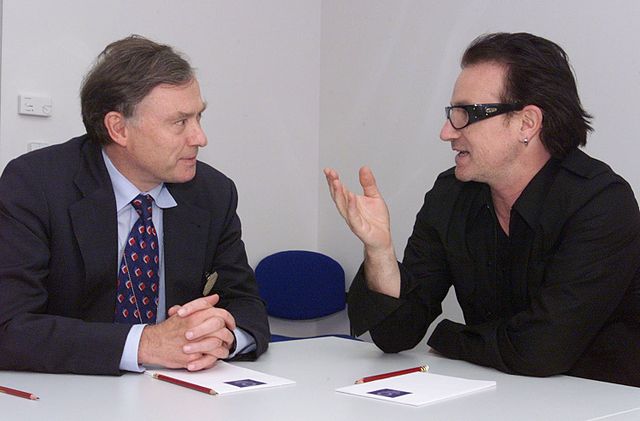U2's Bono and 'The Message' author Eugene Peterson featured in 'Psalms' film
U2 lead vocalist Bono and "The Message" author Eugene Peterson, who became friends during U2's "360" tour in 2010, recently released the 20-minute film that highlights "Psalms" as the core of their friendship. The short film, titled "Bono and Eugene Peterson: The Psalms," became available online via website resource Fullerstudio on Tuesday, April 26.

If "The Book of Psalms" has to be condensed into a documentary that describes its passion and depth, the U2 lead singer, having been known to quote passages from "The Message" version of the Scriptures in his performances, is apparently a good match to the version's author.
The U2 frontman said in an interview with website @U2 sometime 2002 that he had read portions of "Psalms" to his dying father from the more-casual translation "The Message."
Pastor David Taylor, also a filmmaker and producer, got the idea for this project. The film peeks into Bono and Peterson's 15-year, "Psalms"-inspired friendship and how "The Psalms" influenced Bono's music in U2.
Shot live from Peterson's house in Montana, these two friends are seen sharing opinions on the 150 chapters. Peterson's book "Run with the Horses" first caught Bono's attention, according to Fourth Line Film's Nate Clarke, who directed the "Psalms" documentary.
Peterson is a former Presbyterian pastor. His brainchild, "The Message," was published between 1993 and 2002. This version is widely used in churches across the globe up to now due to its simplified, 21<sup>st century vernacular.
In an email to New Boston Post, Taylor emphasized the goal of this special project.
"Our hope is that as a result of watching the film, people will be curious or inspired to read the Psalms themselves and to discover this remarkable book of poetry in Holy Scripture that has captured Bono and Eugene's imaginations," Taylor wrote.
Producers are also hoping that the documentary will connect with church and lay leaders, worship leaders, U2's and Peterson's fans as well as individuals located in the intersection of faith and culture.





